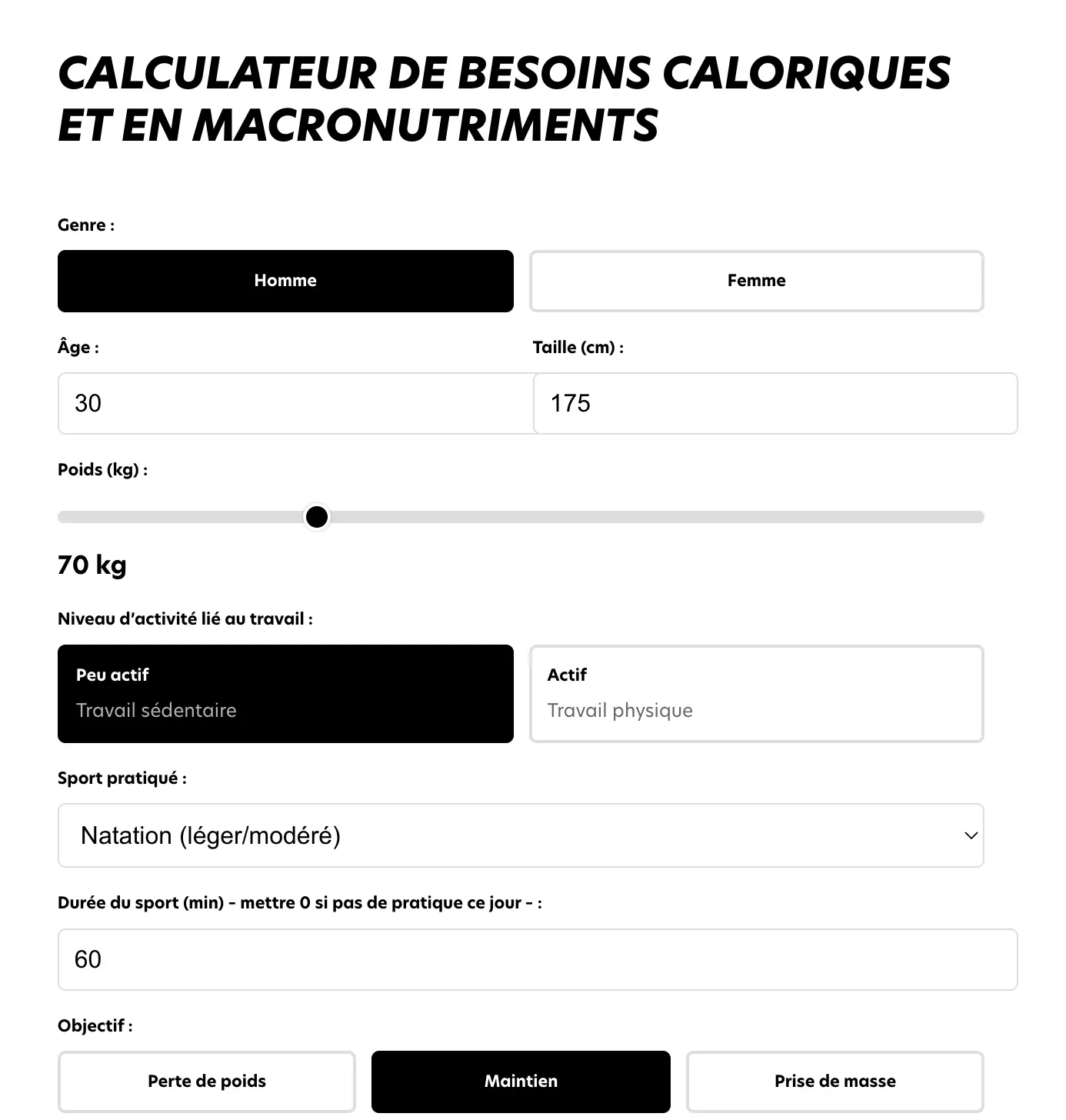In 2021, the Ligue contre l'obésité estimated that 47% of French people were overweight. This rising figure is prompting many people to look for ways to lose weight without affecting their health. Others want to reduce their body fat to improve their body composition or performance.
The sports nutrition market is full of dietary supplements, including whey, a milk protein widely used in bodybuilding to build mass. Yet its image remains controversial. Some claim it helps you lose weight, others that it makes you put on weight.
This article looks at the link between whey and weight loss, to explain why whey can be a healthy aid to weight loss if taken under the right conditions. Even though whey is also used for muscle growth.
That's enough to transform your eating habits and help you achieve your weight loss goals over time.
In a nutshell
- Whey is not miraculous: it can help you lose weight, if taken as part of a suitable calorie deficit.
- A benefit for satiety: rich in protein and essential amino acids, whey promotes the sensation of satiety and preserves muscle mass during weight loss.
- Not all whey products are created equal: isolates, concentrates, native names... their lactose, sugar and calorie content makes all the difference, depending on your objectives.
- The moment of consumption counts: snack, meal or post-workout shaker, effectiveness varies according to use.
- Beware of quality, excess calories or inappropriate use, which can hamper results.
Contents
Whey: can it help you lose weight?
Energy balance: a matter of calories
First, we need to understand a biological mechanism that affects our weight. It's called the caloric balance: a person gains weight when they absorb more calories than they expend.
Conversely, it will lose weight if its caloric intake does not cover its energy expenditure.
There are therefore two options for losing weight: reduce your calorie intake through a low-calorie diet (and)/OR increase your calorie expenditure through physical activity and sport.
To maintain your figure, you need to find the right balance. Without a balanced diet combined with regular physical exercise, you risk theyo-yo effect, leading to rapid weight regain.
We do not recommend "diets" for weight loss, but rather dietary rebalancing, in which whey can indeed play a part.
Weight loss should be very gradual and controlled, at around 2 kg per month.
That's why focusing on your lifestyle and diet is so important if you want lasting results. As part of these good habits, is whey a slimming milk protein?
Energy balance calculator
Protein powder and weight loss
Like other high-protein products, whey can lead to weight loss, but not directly.
Protein is becoming increasingly important in slimming diets. However, a diet too rich in protein can be harmful to the consumer's health.

In fact, studies tend to prove that obesity in wealthy countries is linked to a diet rich in meat, and therefore indirectly in protein. This is partly because, without physical activity, the body also uses these macronutrients to build up fat reserves.
The proteins in the Protéaples no-sugar-added range provide around 380 kcal per 100 g. One shaker contains around 120 kcal. Without physical training, the body can easily store these 120 calories if they are in excess of energy expenditure.
Whey, like other high-protein slimming products, only helps you lose weight if taken in conjunction with workouts tailored to your target.
It is always used as a complement to a balanced and varied diet to support weight loss, or fat loss for muscle leaning. Its effect on weight loss is indirect.
4 reasons to add whey to your diet
There are many reasons to consume whey and here are the 3 main ones, which concern weight loss.
1 - Whey makes you feel fuller
Protein-rich dietary supplements have the advantage of providing a feeling of satiety, thus reducing the sensation of hunger¹. Their appetite-suppressant effect helps to control appetite and avoid snacking between meals, while keeping calorie intake under control.
In fact, proteins release fewer calories than lipids and as many as carbohydrates. 1 g of protein or carbohydrate corresponds to 4 kcal, while the same amount of fat produces more than twice as much energy.
| Macronutrient | Calories per gram | Energy detail |
|---|---|---|
| Protein | 4 kcal / g | 1 g protein = 17 kJ |
| Carbohydrates | 4 kcal / g | 1 g carbohydrate = 17 kJ |
| Lipids | 9 kcal / g | 1 g fat = 38 kJ |
| Alcohol (ethanol) | 7 kcal / g | 1 g alcohol = 29 kJ |
This appetite-suppressant effect is due to whey's high leucine content. This amino acid stimulates satiety hormones (GLP-1, PYY) and slows gastric emptying, prolonging the feeling of satiety after ingestion. Around 25-30 g of isolate covers the threshold of 2-3 g of leucine per intake, so there's no need to "overdose".
2 - Higher postprandial energy expenditure
Whey has a high thermogenic effect: around 20-30% of the calories it provides are spent on its own digestion, compared with just 5% for carbohydrates.
This process, known as the thermal effect of proteins, slightly increases the resting metabolism and total energy expenditure.
In other words, consuming a whey shaker temporarily stimulates calorie burning, without requiring any extra effort.
This benefit, though modest, supports a natural caloric deficit and facilitates fat loss when combined with a balanced diet and regular training.
3 - Better body composition
What's more, whey protein is useful for muscle building in sport, thanks in particular to the 9 essential amino acids it naturally provides.
This powdered dietary supplement improves the quality of calorie intake. It is therefore useful for people who want to optimize their body composition, as it reduces the ratio of fat mass to lean mass. Even if the athlete doesn't lose weight, his or her body will be more sculpted, since muscles will develop to the detriment of fat.
Some studies² suggest that a high protein intake, in excess of 3 g/kg/d, could improve body composition in bodybuilders.
Others suggest that an intake of 2.3 to 3.1 g/kg/d would be necessary to maximize lean mass retention during a hypocaloric period.
However, we do not recommend exceeding 2 g/kg/d and consider that a dosage of between 1.3 and 2 g/kg/d is suitable for the majority of athletes.
4 - Proteins against muscle wasting
For sportsmen and women, and in particular body-builders, whey protein helps build muscle in the post-workout phase.
However, in the context of a diet, if the daily calorie intake is not sufficient to meet energy requirements, the body may consume muscle fibers to produce energy.
Whey, or other protein sources, then "spare" the muscle and prevent muscle wasting in a calorie-restricted situation.
Which whey to choose for weight loss?
Whey isolate, clear whey, gainer... not all protein powders are suitable for supporting a balanced diet, so it's important to choose your whey carefully.
For example, avoid consuming whey gainers, which provide a significant amount of carbohydrates and could therefore ruin all your efforts to lose weight through diet.
That's why when choosing your whey, you need to consider the calories it provides. Ideally, a whey that is suitable for your weight loss goal should provide between 350 and 400 kcal per 100 g.
In this case, isolate-type whey protein is the most suitable protein powder, since it's high in purity and low in calories.
As well as calories, we're also looking for a product without sweeteners, because sweeteners mixed with whey have no nutritional value and are potentially very harmful to consumers' long-term health.
By consuming sweetened protein powder, the chances of failing your weight-loss diet increase. This substance habituates the brain to a sweet taste and makes it want to seek out more and more of it in the diet, which is a paradoxical effect in the quest for weight loss.
What about plant sources?
Whey offers :
- a complete amino acid profile,
- rapid absorption,
- high leucine content.
Compared to plant sources alone, it often achieves a better DIAAS score and provokes a moderate insulin response, promoting satiety.
However, in a hypocaloric context, the effective difference also depends on total protein intake, digestive tolerance, cost per gram assimilated...
Whey may be the most "effective", but not necessarily the best for everyone.
| Criteria | Whey | Animal proteins (egg, fish, lean meat) | Vegetable proteins (peas, rice, soy, mix) |
|---|---|---|---|
| Protein score (DIAAS) | Very high | High | Variable, often lower |
| Fast absorption | Fast | Average | Slow/moderate |
| Effect on satiety | Positive (via leucine, rapid absorption) | Good | Varies according to fiber / antinutrients |
| Cost per gram assimilated | Moderate to high | Often higher | According to brand / extraction |
| Digestive tolerance | Good if isolated and without additives | Variable | Sometimes inconvenienced (fiber, antinutrients) |
Can I take whey to lose weight without exercising?
Yes, technically, it is possible to take whey to lose weight, without exercising, as it helps to reduce the sensation of hunger, which can be useful for controlling cravings and overall calorie intake.
However, whey does not replace meals, but rather complements them. A successful slimming diet relies on a balanced diet and regular exercise to consume more calories than you take in.
Whey does not help you lose weight on its own, but only if combined with a slight calorie deficit and regular physical activity. In this case, it becomes a valuable ally in weight loss.
Instead of a diet, we now speak of a rebalancing diet. The aim is not to lose weight quickly, but rather to slowly approach a healthy weight, with balanced eating habits that are sustainable over the long term.
It is also possible to consume proteins other than sports supplements, such as lean meats, dairy products, eggs, legumes and certain vegetables and cereals. Protein from the diet should remain the basis of protein intake.
How do I take my whey to lose weight?
When to use whey for weight loss?
The ideal time to consume whey depends on the goal you're aiming for. If you're looking to build muscle mass, it's best to take your protein powder after training.
To accelerate and optimize weight loss, eat it as a dessert or snack to take advantage of its appetite-suppressant effect.
We sometimes hear that whey can be used to skip a meal. Beware, however: we do not encourage this practice, which should remain exceptional in specific situations.
Whey is not a meal replacement, despite its remarkable nutritional qualities. Remember that it shouldbe part of a balanceddiet, as part of a fitness program or weight loss plan.
It's also essential to stay well hydrated when dieting, and to be monitored by a professional dietician-nutritionist.
How much whey per day to lose weight?
The daily amount of whey you need to lose weight depends on the rest of your diet. In terms of total protein, you shouldn't exceed 2 g/kg per day, but the exact amount depends on your needs.
You can calculate your caloric needs on our free tool :

In most diets, with a smart diet, one whey shake per day (25g of protein) is enough to meet protein requirements and limit muscle loss.
If the aim is solely to speed up recovery, a post-training shaker is sufficient. In this case, whey will tend to be consumed on training days.
It's also important to review your diet as a whole before starting supplementation, to avoid whey shakes constituting an excess that will encourage weight gain in fat mass.
How much protein should a woman eat to lose weight?
ANSES recommends an intake of 0.83 g/kg/d for a non-sporting profile.
However, for weight loss and muscle preservation, this amount can be increased. Research indicates that an intake of 1.3 to 2 grams of protein per kilo of body weight may be more effective for weight loss and muscle preservation.
For example, an active, athletic woman weighing 60 kg could aim for around 100 grams of protein a day.
ANSES confirms that "based on current knowledge, protein intakes of between 0.83 and 2.2 g/kg/d (i.e. 10 to 27% of energy intake) can be considered satisfactory for an adult under 60".
How much protein per day?
Discover our free online calculator
How do you take your protein to lose weight?
First and foremost, protein intake should be spread throughout the day, so that it is consumed at every meal and snack to improve muscle protein synthesis, promote satiety and reduce cravings.
The body is unable to assimilate more than 30 g of rapidly-absorbed protein in a single post-exercise intake. If you need to consume more, it's best to multiply your intake, at least 2 hours apart.
The quality of protein consumed is just as important as the quantity. It is therefore recommended to opt for complete protein sources that supply essential amino acids, as is the case with meat, fish, eggs, dairy products and certain plant proteins.
Conclusion
Whey alone does not make you lose weight and is not magical. It is effective and useful for weight loss only if it is part of a balanced diet and appropriate physical activity, depending on the athlete's goal. When consumed properly, it can help you lose weight by reducing cravings, preserving muscle mass, and improving body composition.
If the goal is to lose weight in a sustainable way, it is best to choose a pure, low-sugar whey with no additives. It should then be consumed as a supplement to a balanced and controlled low-calorie diet. Whey is not a meal replacement: to achieve visible results and avoid the yo-yo effect, it is important to spread your protein intake evenly throughout the day, between protein-rich foods and supplements.
Whey can help you lose weight, but is no substitute for a balanced lifestyle and regular physical activity.
Scientific references and sources
2International Society of Sports Nutrition Position Stand: protein and exercise by Ralf Jäger et al.















